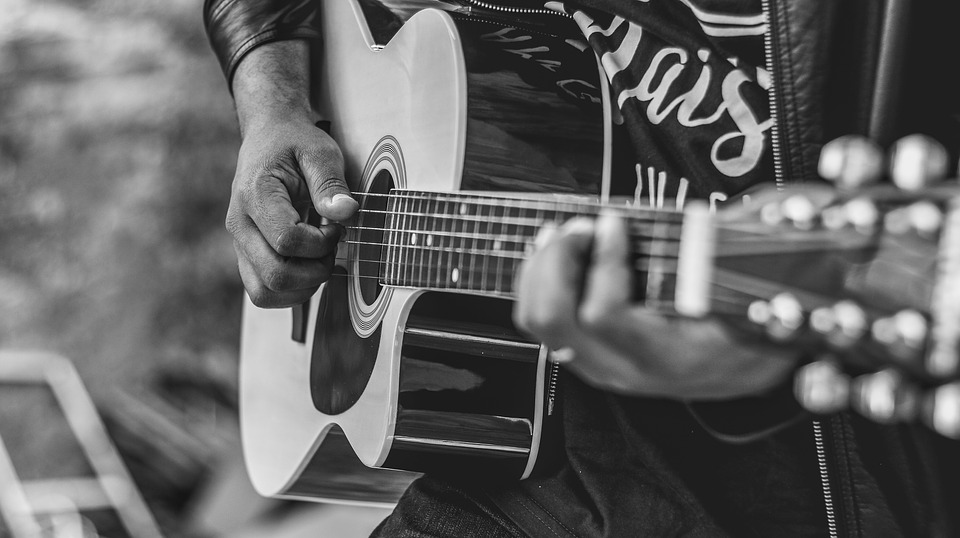
So you want to become a better guitarist? Are you wondering what it takes to be the best? As musicians, we want to keep improving our skills. But sometimes we get carried away by comparing ourselves to others. The key to becoming a better guitar player is to focus on your journey and not somebody else’s. However, this is easier said than done. A lot of up-and-coming musicians fall into this trap where they try to emulate the journey of other successful musicians without trying to carve their own path. Sadly, this approach ends in disappointment for most guitar players.
Once you embrace your strengths and weaknesses, the path towards musical growth is wide open. You need to realize that everyone has certain qualities that set them apart from other guitar players. The fact is, your taste, emotions, and experiences are all unique and this is something that you can cash on to improve yourself as a guitarist.
Keep in mind that there will come a time in your musical journey where you will feel like you have “hit a wall” in regards to your guitar skills. You might feel frustrated due to the lack of inspiration surrounding new ideas. However, we are here to help you tackle this mental block. Here are some tricks that you can use to up your guitar game.
Be More Open To New Ideas
You might have heard some “experts” saying that the key to becoming a successful guitarist is to choose a genre or a niche for yourself and run with it. While it is natural for musicians to align their music with a specific genre and stick to it, it is sometimes a good idea to explore new avenues. This means that you can experiment with your music by either expanding within your favorite genre or switching to another genre for creative flexibility.
This does not mean that you should spend months listening to hardcore rock if you love pop or country music. The objective is to expose yourself to different artists and their music. This can help you get new ideas and come up with some fresh tunes during a random strumming session.
Visualize
You do not always need a guitar in your hands to practice some chords. You can just simulate a situation in your mind where you are effortlessly executing the perfect lick, riff, or song that you have been working on recently. As weird as it sounds, the power of visualization can do wonders for your confidence when you’re physically playing the guitar. The plus point of this exercise is that you can do it anywhere, anytime. You just need to sit back and let your mind do the work.
Imagine yourself working those strings with unprecedented ease. Visualize your fingers executing different strumming patterns while you hit the chords with perfect timing. As you might have heard, the first step in achieving a goal is conceiving the process before it happens.
As corny as it sounds, you need to develop such a relationship between your mind and your hands that they function in complete synchrony with each other. If your hands can successfully work the fretboard in coordination with what you envision and what you want to hear, your guitar playing skills will reach a whole new level.
Warm-Up Exercises
Doing some warm-up exercises before the actual practice session can help you get into a nice rhythm. If you have scheduled a practice session with other members of your band or if it’s a pre-performance rehearsal, you will first need to warm up your fingers and wrists. Imagine yourself as a sprinter or a marathon runner, where you can not just go out on the field without stretching your muscles first. As a guitarist, you need to take similar care of your body, especially your hands.
Most guitarists shy away from the warm-up exercises because they find them boring and futile. While these drills may not be fun, they are instrumental in protecting your body from stiffness, aching, and fatigue while also improving flexibility.
Jam With Other Musicians
Back in our school days, every time there was an exam coming up, my friends would come up to my house and we would study together. This was an effective way to prepare for an exam while also having loads of fun along the way. Similarly, practicing with other like-minded musicians can help you come up with new ideas and learn new techniques. Getting feedback from your peers will encourage you to build on your strengths and work on your weaknesses.
Looking at different styles and techniques can help improve your timing consistency and improvisational skills. If you ever feel like your guitar pedal effects are not coming out the way you want them to as you jam, you may get pedal platform amplifiers for some cool sound effects. Having your pedalboard in order is simply not enough, as your amplifier can have a considerable impact on your sound. A pedal platform amp with high headroom will remain clean and articulate at high volumes as you crank it up, without breaking up or becoming distorted, all while giving an incredibly clean sound.
P.S.: If you are in the UK, you may want to put off your jamming sessions to a later date until the COVID-19 wave subsides and it is safe to gather in large groups once again.
Record Your Strimming Sessions
Consider this: You have been playing the strings of your favorite song for the past couple of months and you feel like you have mastered the cover. You play it for a friend and he points out a few flaws. Now you are confused and so you decide to record yourself playing the cover. Turns out, your friend was right when he said that your rhythm was a bit off.
This goes to show how beneficial it can be to record your practice sessions. It allows you to analyze your performance objectively and work out any loopholes that you encounter. As time goes by, you can assess exactly how far you have come and how your skills have improved by the day.
Evaluate Your Progress
Sounds boring? Well, it does not have to be like that. You can keep a track of your progress in ways that are more enjoyable. For example, record your practice sessions at the start of the week and then at the end of the week to compare how much you have improved.

As with any other musical instrument, improving your guitar playing skills requires a great deal of perseverance and commitment to practice. Have faith in yourself and your abilities, and NEVER GIVE UP! With these few tricks and tips in mind, nothing can stop you from bringing out the best in yourself and achieving mastery over playing the guitar.































